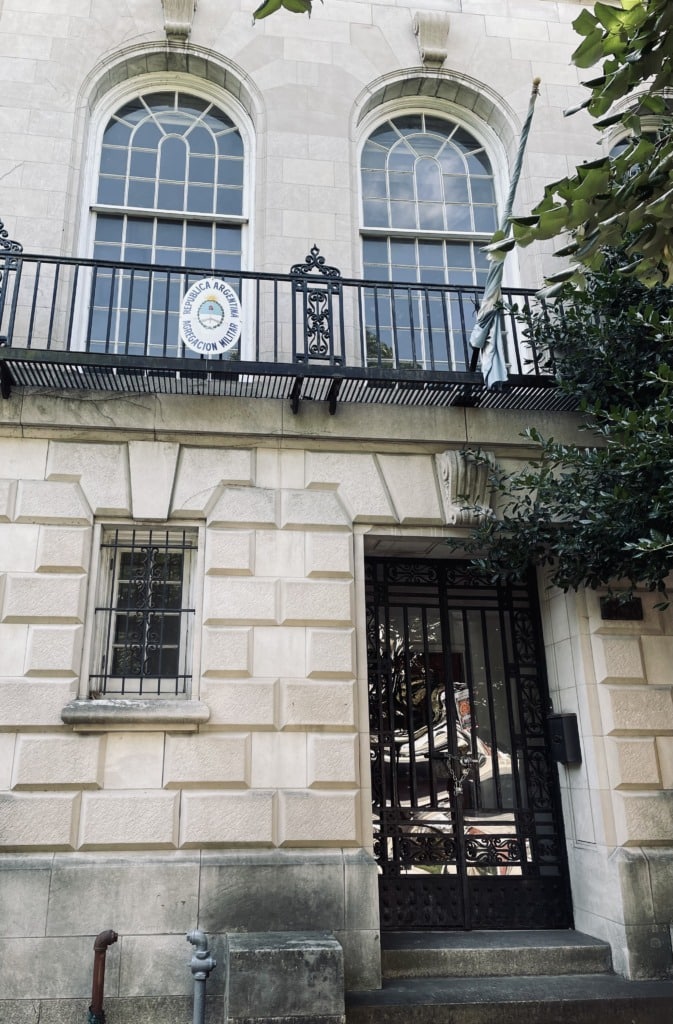Governor Newsom Signs Holocaust Art Bill
Yesterday, California Governor Gavin Newsom signed AB 2867 into law. The bill provides that California law applies in suits brought by a California resident involving the theft of art or other personal property during the Holocaust or other political persecutions. Assemblymember Jesse Gabriel introduced AB 2867 in response to the Ninth Circuit’s decision earlier this…
Continue ReadingD.C. Circuit Rejects FSIA Waiver Exception to Uphold Immunity of Sovereign-Owned Property
In a recent decision, Bainbridge Fund Ltd. v. Republic of Argentina, the D.C. Circuit rejected a judgment creditor’s attempt to attach and execute upon the Chancery Annex, a building owned by Argentina in Washington, D.C. Argentina’s creditors have chased it for two decades, since the beginning of its sovereign debt crisis, to varying degrees of…
Continue ReadingD.C. Circuit Limits Jurisdiction over Foreign States in Breach of Contract Claims
Circuit courts have split on the issue of what is required for a breach of contract to have a “direct effect” in the United States for the purposes of the Foreign Sovereign Immunity Act (FSIA) (a primer on foreign sovereign immunity is available here). Rulings in the Seventh and Eleventh Circuits impose a “place of…
Continue ReadingNinth Circuit Denies Rehearing En Banc in Cassirer
The legal saga surrounding the Cassirer family’s attempt to reclaim a Camille Pissarro painting seized by the Nazis has taken another step. Litigation in Cassirer v. Thyssen-Bornemisza Collection Foundation has bounced among the Central District of California, the Ninth Circuit, the California Supreme Court, and the Supreme Court of the United States. (For more coverage…
Continue ReadingSupreme Court Grants Cert in Holocaust Expropriation Case
The Supreme Court granted cert this morning in Republic of Hungary v. Simon to consider further questions under the expropriation exception of the Foreign Sovereign Immunities Act. In Republic of Germany v. Philipp(2021), the Supreme Court held that the expropriation exception does not apply to a government’s taking of the property of its own nationals….
Continue ReadingSupreme Court Denies Cert in Fighter Jets Case
This morning, the U.S. Supreme Court denied review in Blenheim Capital Holdings Ltd. v. Lockheed Martin Corp., a case asking whether the purchase of fighter jets and other military equipment is a commercial activity under the Foreign Sovereign Immunities Act. Despite a circuit split on the question, the Solicitor General recommended that the Supreme Court…
Continue ReadingSolicitor General Recommends Denial of Cert in FSIA Case
Is a foreign government’s purchase of military equipment a “commercial activity” for purposes of the Foreign Sovereign Immunities Act’s (FSIA) commercial activity exception? In a brief filed on May 14, 2024, at the Supreme Court’s invitation, the Solicitor General (SG) answered “it depends.” This answer is surprising. It is in considerable tension—if not outright conflict—with…
Continue ReadingThe Challenges of Suing Under JASTA
Foreign states may be sued in the United States only to the extent permitted by the Foreign Sovereign Immunities Act (FSIA). Over the years, Congress has amended the statute to create several exceptions to immunity for terrorism-related lawsuits, especially for those brought against states designated as “state sponsors of terrorism.” But only a very small…
Continue ReadingIt Is Harder Than It Looks to Sue State Sponsors of Terrorism
Rotem and Yoav Golan were injured in a 2015 terrorist attack in Israel when an assailant deliberately drove his car into a crowd of people. The Golans and their family sued Iran and Syria for various torts and for aiding and abetting a terrorist attack. Judge Trevor N. McFadden of the U.S. District Court for…
Continue ReadingSecond Circuit Hears Halkbank Oral Argument
On February 28, 2024, the Second Circuit heard oral argument in United States v. Turkiye Halk Bankasi A.S. From the judges’ questions—which admittedly came almost exclusively from Judge Bianco—the panel seems likely to hold that Halkbank, a Turkish state-owned bank, is not immune under federal common law from criminal prosecution for violating U.S. sanctions on Iran. That…
Continue Reading






